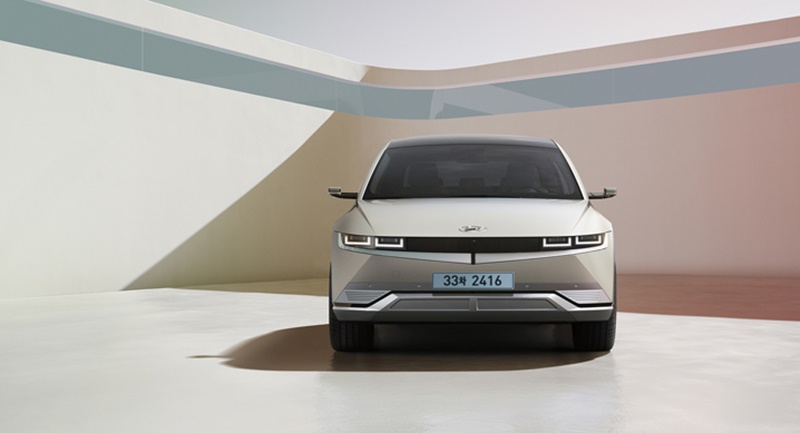
The Ministry of Environment on March 2 released this year's planned measures to achieve the nation's carbon neutrality goal by 2050, saying all motor vehicles will eventually be eco-friendly. The photo shows the electric-powered Hyundai Ioniq 5 launched on Feb. 23. (Hyundai Motor)
By Yoon Hee Young and Kim Minji
Korea has announced a transition from internal combustion vehicles to zero-emission models, one of the main strategies for achieving the government's carbon neutrality goal by 2050.
The Ministry of Environment on March 2 unveiled its planned initiatives this year to help achieve the 2050 objective and presented a clear direction for government policy to that end.
The ministry said it will devise 11 of 31 transition tasks with related organizations, adding that the main strategy is the nation's transition to future cars.
The strategy will be finalized in the second half of the year. The government will supply and innovate eco-friendly vehicles, expand charging infrastructure, and conduct research and hold forums on introducing eco-friendly vehicles.
The ministry will also release this year another strategy for reducing CO2 emissions and using nature and ecology to devise adaptation strategies. The idea is to respond to climate change by using natural ecosystems through maximizing benefits from them like climate modification and expanding the restoration of eco-spaces, which are carbon sinks.
Environment Minister Han Jeoung-ae said, "As a leading department for achieving carbon neutrality, the Ministry of Environment will promote transition in all sectors of society and set a foundation to achieve the carbon neutrality goal."
hyyoon@korea.kr
Most popular
- Military discharge sets stage for reunion of all 7 BTS members
- 'We are back!' BTS Festa heralds hyped return of K-pop phenom
- Presidents Lee, Trump discuss tariff deal in first phone talks
- 'Maybe Happy Ending' wins 6 Tonys including Best Musical
- President Lee leaves for G7 Summit in Canada on first int'l trip
